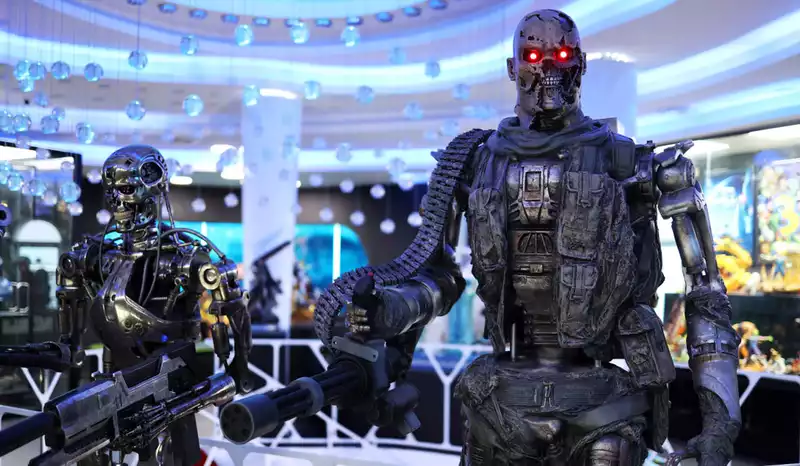Cybercrime in 2030 will be carried out by computer programs that are intelligent, self-learning, and difficult to defend against, two researchers predicted at the RSA Conference on Monday (May 17).
Dr. Victoria Baynes of Oxford University and Rick Ferguson of information security firm Trend Micro used existing trends to predict that society and everyday life will become even more wired (and wireless) than it is today and that criminals will quickly adapt. Their white paper, "Project 2030," can be downloaded from the Trend Micro website.
Baines and Ferguson predict that for the average person in affluent countries, wearable devices will monitor health and plan diets. Smart home devices will talk to each other and coordinate users' schedules.
With instant access to all the knowledge in the world, elementary school students will no longer need to memorize facts and figures. Like "Black Mirror," artificial intelligence could even keep human personalities "alive" on social media after their physical bodies have died.
And the fight against cybercrime will involve battling relentless, smart, and adaptive robots, say Baines and Ferguson. As repetitive tasks become more automated, cybercriminals will let computer programs do the reconnoitering to find new victims.
"Every organization and sector of society will have access to artificial intelligence tools. This will inevitably include malicious actors, be they individuals, criminal enterprises, or states."
Baines and Ferguson caution that "the events and developments described are designed to be plausible in one part of the world, as opposed to being inevitable in all regions." They note, however, that a similar exercise in 2012, called "Project 2020," was consequently quite accurate.
By 2030, every aspect of normal life could be hacked and lives lost as normal life is wired. Criminals could alter the medications automatically delivered by medical implants, change the information that goes into smart contact lenses and neural implants, and reprogram the navigation features of cars. Nations would use artificial intelligence to defend themselves and attack others.
"Cyber attacks will result in the loss of humans, not data," Baines said in his presentation. By 2030, nations will be cyber-attacking each other by mistake, without human intervention."
Malware will learn new tricks and adapt itself to new situations. Algorithms, rather than humans, will conduct social engineering attacks, engaging in online conversations with potential victims and swindling them out of money and valuable information.
Industries will become highly automated and crypto-ransomware will become obsolete. Instead, criminals will hack directly into a company's processes and threaten to disrupt operations unless paid.
Botnets will infiltrate smart devices in corporate offices and launch attacks from the inside.
Deep fakes infiltrate workplace conference calls, making it completely impossible to tell whether you are talking to your boss or a robot. Meanwhile, identity thieves will really steal your identity and use the vast amount of information available about you to create avatars to take your place in social media and online business meetings.
"AI-generated images are now so accurate and lifelike that citizens can no longer tell the difference between synthetic and real content. Disinformation is evolving into full-blown immersive conversations with artificially generated avatars, capable of changing citizens' minds and even corporate policies."
Baines and Ferguson offer few defenses against cybercrime in this brave new world. There is still some time to get ready, they noted.
"We can map the evolution of cybercrime," Baines said at the RSA presentation. "Uncertainty is no longer a reason to be unprepared"
.









Comments